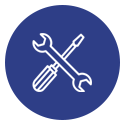Hazards of Home Ownership


Owning a home is the American dream, but it’s also a massive responsibility with many hazards, obstacles, and downsides. From plumbing problems to lead findings to mold and mildew, the possibilities for what could go wrong are endless. Get ahead of tragedy by staying informed and aware of what could happen in your house.
Let’s take a look at some of the common home hazards that homeowners should be aware of.
Natural Disasters
Natural disasters are among the most common and dangerous dangers associated with home ownership. Depending on where you live, your home could be at risk for tornadoes, hurricanes, floods, fires, and earthquakes. While these disasters are often out of your control and can cause significant damage to your home and property, there are steps you can take to lessen their impact. For example, installing window storm shutters will help protect them from hail and high winds in tornado-prone areas. Additionally, having an emergency kit stocked with non-perishable food items and other supplies can help if you need to evacuate or if services are interrupted for an extended period.
Pests
Another potential hazard that comes along with owning a home is pests. This could include anything from rodents to insects like termites or bed bugs. Pests can cause extensive damage to your home, spread disease, and contaminate food sources if left unchecked. To prevent pest infestations in your home, ensure all entry points are sealed off properly and keep food stored in airtight containers. Regular inspections for signs of infestation—such as droppings or chewed wires—can help catch any issues before they become larger problems.
Legal Issues
Finally, homeowners should also be aware of legal issues that could arise during their ownership period. This includes disputes over boundary lines or zoning violations that could lead to hefty fines if not resolved quickly and correctly. Ensure you’re familiar with local laws governing homeownership in your area so that you don’t find yourself on the wrong side of the law! Additionally, it’s always wise to consult an attorney when dealing with serious legal matters related to owning a home; they have the expertise necessary to ensure everything is handled correctly and efficiently so that you can continue living happily in your new abode without worry!
Lead-Based Paint Hazards
Lead-based paint was commonly used before 1978 and remains in many older homes today. If your home was built before this time, you should have it tested for lead-based paint as soon as possible. Exposure to lead-based paint can cause serious health problems such as learning disabilities, behavioral issues in children, and kidney and reproductive problems in adults. If you do find out that there is lead-based paint present in your home, you should hire a professional lead abatement specialist to remove it safely.
Fire Hazards
Fires are one of the most common hazards for homeowners, and they can occur for a variety of reasons—from faulty wiring to improper ventilation. To reduce your fire risk, ensure all your electrical outlets are up to code and use only approved appliances in enclosed areas like garages or attics. Additionally, install smoke detectors on every floor of your home and test them regularly to ensure they’re working properly. Taking these simple precautions can help protect you from the devastating effects of fire damage.
Carbon Monoxide Hazards
Carbon monoxide (CO) is an odorless gas that can cause flu-like symptoms if inhaled for a long time. The most common sources of CO include leaking furnaces or water heaters and blocked chimneys or vents. To guard against CO poisoning, make sure all gas appliances are properly vented and installed by a certified technician; replace any old furnaces or water heaters; and install carbon monoxide monitors throughout your home. Taking these safety measures will help ensure your family’s health and safety against CO poisoning risks.
Electrical Hazards
One of the most common home hazards is faulty wiring or overloaded circuits. Overloaded circuits can cause fires and other serious accidents, so it’s important to be aware of the electrical load in your home. If you notice any flickering lights or sparks coming from outlets, it’s best to call an electrician right away. You should also have your circuit breaker inspected regularly for signs of damage or wear and tear.
Mold & Asbestos Issues
Another major hazard that homeowners should be aware of is mold and asbestos contamination in the home. Both mold and asbestos can cause serious health issues if left unchecked, so it’s important to have any suspicious areas tested by a professional immediately. It’s also important to keep your home well-ventilated during humid months, as this will help reduce the risk of mold growth.
Carbon Monoxide Poisoning
Finally, carbon monoxide poisoning is another potential hazard that homeowners should look out for. Carbon monoxide is an odorless gas that can cause serious health issues if inhaled in large quantities over time. To prevent carbon monoxide poisoning, make sure all fuel-burning appliances are properly maintained and vented outdoors, and install carbon monoxide detectors throughout your home (especially near bedrooms).
Clogged Drains
Clogged drains are probably the most common plumbing problem that homeowners face. Clogs usually happen when food scraps, hair, or other debris build-up in pipes over time, eventually blocking the water from flowing freely through them. If you notice that your drains are draining slowly or not at all, it might be time to call a professional plumber for help with clearing out any clogs before they become worse.
Leaky Pipes
Another common plumbing hazard is leaky pipes. Leaks can occur due to corrosion or damage caused by freezing temperatures or other environmental factors like earthquakes and floods. If you are dealing with persistent dripping from your pipes or wet spots near your walls or ceiling, it’s important to contact a plumber right away before the problem worsens and causes more damage.
Faulty Water Heater
Your water heater is essential to your home’s plumbing system, so paying attention to its performance is important. A faulty water heater can lead to higher energy bills due to wasted energy and can also cause water damage if left unchecked for too long. It’s always best practice to have your water heater inspected regularly by a qualified plumber to catch any potential problems before they become bigger issues.
Homeownership presents both rewards and risks—but with the right knowledge and preparation, you can reduce those risks significantly while still enjoying all the benefits that come with owning a home. Familiarizing yourself with common hazards like lead-based paint, fire damage, and carbon monoxide poisoning will help you better prepare for any unexpected issues that may arise during ownership. Take proactive steps today by having regular inspections done on all major systems in your home, such as electrical wiring, plumbing systems, HVAC systems, etc., and installing smoke alarms and carbon monoxide detectors throughout the house where necessary. With this knowledge under your belt, you’ll be able to keep yourself safe while enjoying all the benefits that come with being a homeowner!
For all of your home plumbing needs, don’t hesitate to reach out to our team at EJ Home Services!

Worried about an electrical or plumbing problem?
When you need electrical or plumbing services in San Jose, Santa Clara, or any of the communities in the surrounding Bay Area, count on EJ Home Services. With more than a decade of industry experience, our expertly-trained technicians can handle just about any problem you may have. From drain cleaning to water leaks, sewer line replacements, toilet repairs, electrical repair, upgrades, and more, you can rely on us for all your needs. We even offer emergency services upon availability for serious issues that just can't wait. Our dependable team is always available to assist you.








